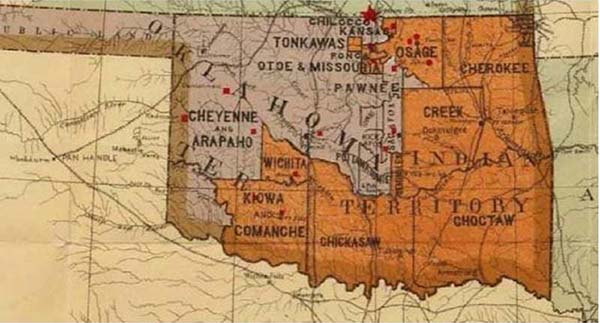
- Details
- By Native News Online Staff
WASHINGTON — The National Congress of American Indians, the nation’s largest and most representative American Indian and Alaska Native organization, reacted Thursday to the unfolding saga in Oklahoma, saying it opposes the “baseless” efforts to disestablish or terminate the reservations of several tribal nations.
This comes after the U.S. Supreme Court ruled on July 9 that Congress never “disestablished” the 1866 reservation boundaries of the Muscogee (Creek) Nation, which encompasses nearly three million acres and includes most of the city of Tulsa.
In a statement, NCAI said in part:
“NCAI’s mission is to fully protect and support the sovereignty of every tribal government across the country. As such, we will strongly oppose any and all legislation that diminishes the sovereignty, jurisdiction, or treaty rights of tribal nations that are affirmed in the United States Constitution, statutes, and judicial opinions, including in the Supreme Court’s historic McGirt decision. NCAI is aware of a legislative effort currently underway in Congress to disestablish or terminate the reservations of certain tribal nations in Oklahoma, and we will aggressively oppose this baseless action.”
On July 16, the Oklahoma Attorney General reached an agreement with five major Oklahoma tribes, known as the Five Civilized Tribes – the Cherokee, Choctaw, Chickasaw, Creek and Seminole. The so-called “agreement-in-principle” detailed how criminal and civil legal matters will be handled in the state and came only a week after the Supreme Court’s decision reaffirming that a large portion of eastern Oklahoma is American Indian territory. The agreement had been criticized for undermining the court's historic ruling.
“The historic Supreme Court decision in McGirt v. Oklahoma was pivotal for its recognition of tribal sovereignty and the perpetual sanctity of treaties with tribal nations. As the decision states, ‘The most authoritative evidence of the Creek’s relationship to the land lies… in the treaties and statutes that promised the land to the tribe in the first place.’ Pursuant to this ruling, the policy of the federal government – specifically that of the U.S. Congress – ought to be to respect the promises made to the Creek, and to all of the other tribal nations across the country, who were promised permanent homes. In the words of Justice [Neil] Gorsuch, ‘We hold the government to its word,’” NCAI President Fawn Sharp said in the statement.
More Stories Like This
Native News Weekly (August 25, 2024): D.C. BriefsNavajo Nation Mourns the Passing of Former Vice President Rex Lee Jim
Deb Haaland Earns Endorsement From Communications Workers of America Local 7076
University Soccer Standout Leads by Example
Two Native Americans Named to Democratic Congressional Campaign Committee's“Red to Blue” Program
Help us defend tribal sovereignty.
At Native News Online, our mission is rooted in telling the stories that strengthen sovereignty and uplift Indigenous voices — not just at year’s end, but every single day.
Because of your generosity last year, we were able to keep our reporters on the ground in tribal communities, at national gatherings and in the halls of Congress — covering the issues that matter most to Indian Country: sovereignty, culture, education, health and economic opportunity.
That support sustained us through a tough year in 2025. Now, as we look to the year ahead, we need your help right now to ensure warrior journalism remains strong — reporting that defends tribal sovereignty, amplifies Native truth, and holds power accountable.
 The stakes couldn't be higher. Your support keeps Native voices heard, Native stories told and Native sovereignty defended.
The stakes couldn't be higher. Your support keeps Native voices heard, Native stories told and Native sovereignty defended.
Stand with Warrior Journalism today.
Levi Rickert (Potawatomi), Editor & Publisher

